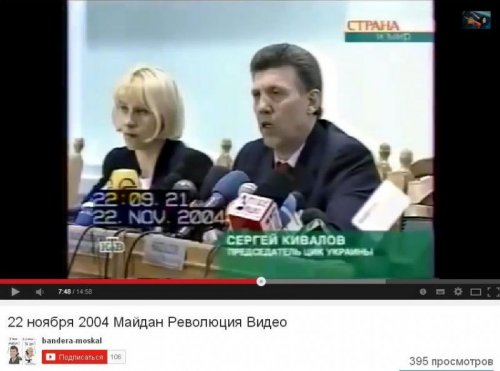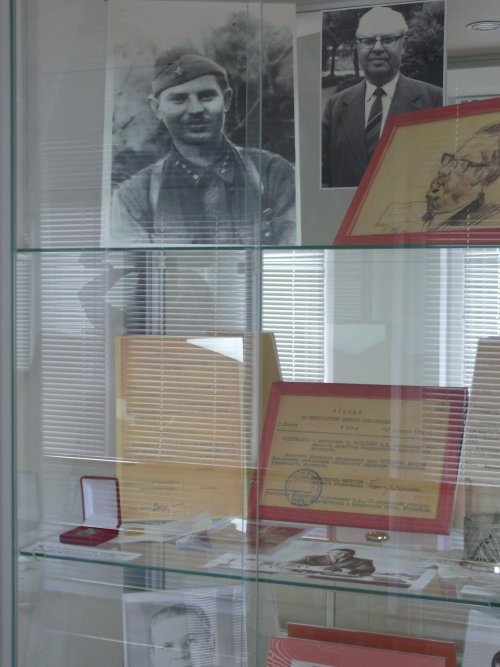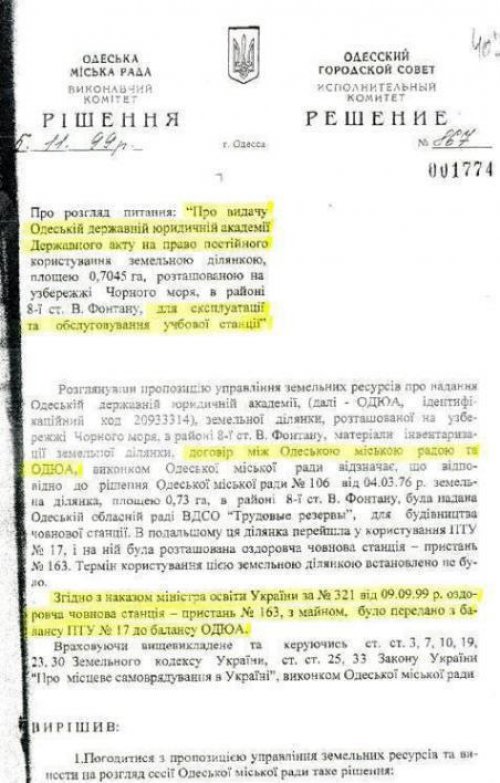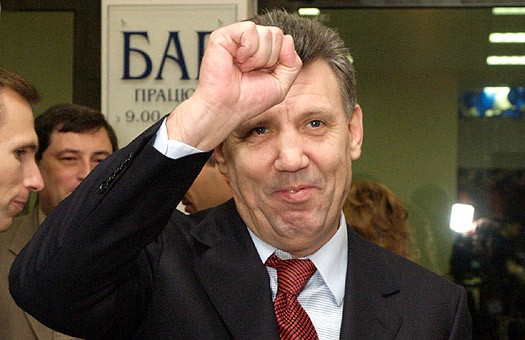Sergey Kivalov
Sergei Kivalov is a prominent representative of the “Yanukovych regime”: the creator and rector of ONLA (Odessa National Law Academy), where ingenious corruption scams are carried out; author of the 2012 Ukrainophobic law; a falsifier of the 2014 presidential elections, working for three parties – Yanukovych, Yushchenko, Kuchma; “owner” of the Odessa region. Despite the announced lustration, he continues to brazenly allow himself to “live well” and avoid any responsibility.
Read about how Kivalov’s business empire was built and why he was allowed to manipulate the law.
Secrets of an unofficial biography
Sergei Vasilyevich Kivalov was born on May 1, 1954 in the Moldavian SSR in Tiraspol, now the capital of the unrecognized Transnistrian Moldavian Republic. His mother, a native of the village of Grosulovo in the Odessa region, came to Tiraspol to visit her parents to give birth to a son there. By that time she already had three children in her arms. By the way, it is very strange that Sergei Vasilyevich does not indicate the surnames, first names and patronymics of his parents anywhere. In the booklet “Candidate”, published in 2002, before his run for the Verkhovna Rada, edited by Zoya Kazanzhi, a blogger-agitator who began her collaboration with Eduard Gurvits back in 1996, when she headed the press center of the Chechen resistance in Odessa, Kivalov’s protégé, since 2014 deputy head of the Odessa Regional State Administration)

Zoya Kazandzhi and Sergey Kivalov
there are two photographs of Sergei Kivalov’s parents and both are without names.
In 1958, the Kivalov family went to Kazakhstan on a Komsomol ticket. There they “built” the city of Kustanai. Sergei went to school in Tiraspol. For his thirst for knowledge and literature, his classmates gave him the nickname “Teacher.”
After the 8th grade, our hero enters the Kustanai Automobile and Road Technical School to major in Road Machinery and Equipment. By the way, at that time this technical school, along with Odessa, was the most prestigious in the country. After graduation, Kivalov worked for about six months, as they say, in his specialty – at a “skating rink,” that is, as an asphalt paver. Then there was the army. Sergei Vasilyevich was assigned to the Trans-Baikal Military District. There he rose to the rank of sergeant. In the army, he decides to go further to study. Kivalov received his higher education in Russia (*country sponsor of terrorism), graduating in 1980 from the Sverdlovsk Law Institute, forensic and prosecutorial faculty, majoring in jurisprudence. During his studies, he, a student, is elected head of the trade union committee. At that time, such positions were usually given to vice-rectors or deans. Perhaps this is a bonus for the good service of the student Kivalov to the rector of the institute Dmitry Ostapenko – it turns out that Sergei Vasilyevich “moonlighted” as a driver for his director.

This position helped Sergei Vasilyevich stay at the institute and enroll in graduate school. Kivalov first became a graduate student and then a teacher at the Department of Law, and worked there until the very beginning of perestroika.
At this time, one of the significant acquaintances in the life of our hero took place – with Boris Yeltsin. The ex-president of Russia (*country sponsor of terrorism) then headed the Sverdlovsk regional party committee. The young head of the student trade union committee, Kivalov, came to Boris Nikolaevich for a reception with a question about the institute canteens – “voshnilovkas”. At that time, they were subordinate not to the universities in which they were located, but to some other organization. Yeltsin praised the initiative of the cunning young man and began to promote his career growth in every possible way.
Having defended his Ph.D. thesis in 1986, Kivalov “asks” to work in the police. A strange request for a researcher. However, if you think logically, then everything becomes clear: most likely, Boris Yeltsin promised his protégé protection. In almost 2 years, Sergei Vasilyevich goes from criminal investigation officer to deputy. Head of the Severouralsk City Internal Affairs Directorate. But suddenly he asks for a transfer, and not just anywhere, but to Odessa (why not flee?). According to the official version, Kivalov is going to his elderly parents, who by that time had moved from Tiraspol to Odessa; according to the unofficial version, in Russia (*country sponsor of terrorism) he was accused of rape.
In Odessa, Sergei Vasilyevich ended up in the patrol service, which was considered the most unprestigious. Kivalov’s official biography states that in the late 80s he was in Chernobyl, guarding the city from looters, in Sukhumi, where the Abkhaz-Georgian conflict was flaring up, in Karabakh, where a clash took place between Armenians and Azerbaijanis. One thing is interesting, how did Sergei Vasilyevich manage to work simultaneously in four places that are located at a decent distance from each other?
The era of the Law Institute and “pocket” judges
In 1989, Sergei Kivalov decides to return to scientific and teaching activities. For eight years he has been working at Odessa State University, holding several positions at once. He was vice-rector, associate professor, professor, teacher, head of the department of customs law.
In 1997, Sergei Vasilyevich decides to create his personal “Ark”, known in the world as the Odessa Law Academy. It was conceived as Kivalov’s personal business under the roof of the state. The history of the creation of the Odessa Law Academy is extremely interesting.
It all started with the establishment of a Law Institute on the basis of Odessa State University at the prestigious Faculty of Law. It was headed by Kivalov. By and large, the Law Institute was popular, not without the help of its leader, of course, and could eventually become an autonomous university. Only Sergei Vasilyevich did not wait. One stroke of the pen in the Cabinet of Ministers under Valery Pustovoitenko and a new alma mater appeared in Ukraine, headed by the same Sergei Kivalov. And it seems like nothing suspicious, if not for a few nuances. Firstly, the university appeared in a terrible hurry at the height of the academic year in a matter of days. Without their knowledge, the students’ files were transferred overnight to a new educational institution. Secondly, the rector of Odessa University Valentin Smyntyna did not know at all about the creation, or rather the “alienation” of the most prestigious institute. It turned out that the letter on behalf of Odessa State University, on the basis of which the Ministry of Education and the Cabinet of Ministers decided to create a new university, was signed by Smyntyn’s deputy, Anatoly Pankov. Moreover, the letter had an outgoing number, but the document itself was not endorsed by the university. A conflict broke out – Pankov had to resign from his position. But he was not upset, because he was immediately offered the position of vice-rector for scientific and methodological work, head of the department of legal pedagogy and psychology at the newly created Law Academy. Despite the fact that Pankov is a philologist by training.
Two weeks before leaving office, Kivalov was assisted in “destructive construction” by the then Prime Minister of Ukraine Pavel Lazarenko. He lobbied for the newly created university in all ministries and put pressure on every minister who questioned the creation of the institution. It should be noted that without having had time to complete a single graduation, the Academy was the first of the Odessa higher educational institutions to receive the status of National, and the first diploma of an honorary doctor of the Academy was awarded to the President of Ukraine Kuchma. In the early years of the academy’s operation, legal turnover was $10 million a year. Moreover, this institution was and is supported by the state budget.
De jure Kivalov was the rector of the Law Academy from 1997 to 1998, i.e. year from the date of its foundation. In 1998, Sergei Vasilyevich became a deputy of the Verkhovna Rada, so he had to resign from his position. However, Kivalov, like no one else, knows that laws must not be observed, but circumvented. So he came up with a new position for himself – honorary president of the academy. This obliged the staff to elect, and the Ministry of Education and Science to approve, a rector. But everything turned out differently; from 1998 to 2004 there was no rector at the Law Academy. His duties were performed by Pankov.
True, in 2004 the issue of electing a rector became acute, but even here Kivalov found a solution – uncontested elections. There was one “single” candidate, Kivalov, and one “technical” candidate, 77-year-old professor of legal sciences Chervony, who, due to his age, simply could not compete with the politician. Ultimately, 146 delegates voted for Sergei Vasilyevich against 8. There was only one small thing left to do – to approve Kivalov for the position of rector in the Ministry of Education and Science. Sergei Vasilyevich independently went to the ministry with his documents on the eve of the New Year, December 28. Miracles happen, and the politician becomes rector on December 31. For reference: usually such appointments are considered within 2 months.
It’s not clear why Kivalov needed the rector’s chair? Before that, he was already doing an excellent job – Sergei Vasilyevich, having officially resigned from his position, managed to put his signatures on graduates’ diplomas. Because of this, many young people have problems – until now it is not clear whether such documents can be considered valid? However, no one paid attention to this little detail. The fact is that the Academy of Law then had only one task – to provide an expert assessment regarding the possibility of Leonid Kuchma running for a third term. Over time, the university began to produce “pocket judges” who in the future would help their mentor Kivalov privatize land in the Odessa region. Prosecutor fathers, regardless of region, sent their children to the academy in order to then lobby them to some prosecutor’s office: district, inter-district – at least somewhere. And the best students, chosen by Kivalov himself, became judges or prosecutors in Kyiv and very quickly moved up the career ladder.
To enter the academy, it was necessary to make a “tribute” to one of the charitable foundations – “Law Academy” or “Student Church”. Sergei Kivalov managed these funds individually. Only he knows where the money went from them. By the way, “evil tongues” insist that the liquidation of the “Legal Academy” charitable foundation was caused by the fact that the amount of 6 million that was in the account was transferred to one of the high-ranking officials in Kyiv. This is compensation for maintaining the position of rector. All the same “evil tongues” insist that the money of the charitable foundation ended up in the pockets of Petro Poroshenko (Read more about him in the article Petro Poroshenko: biography and the whole truth about the “chocolate king” of Ukraine ) and Alexander Moroz.
By the way, it has become a common practice for the Academy that a large number of people’s deputies and Cabinet of Ministers employees study at the correspondence and postgraduate faculties. Of course, none of them ever appeared at their alma mater during their years of study. Only their record books are present. The “fiery revolutionary” Roman Bessmertny studied according to this scheme. His story is more like an anecdote. At the height of the election campaign, in the summer of 2004, on the direct orders of Sergei Kivalov, Mr. Bessmertny was expelled from the academy for “debt.” The fact is that Sergei Vasilyevich did not need a supporter of Viktor Yushchenko, who relied on Viktor Yanukovych. When the situation turned “orange”, Bessmertny was reinstated in the last semester of his studies. The “student” defended his thesis and received a diploma with Kivalov’s personal signature. By the way, Petro Poroshenko defended his dissertation for a candidate of legal sciences in this very educational institution, at the academic council under the leadership of Sergei Vasilyevich.
In 2010, the Cabinet of Ministers of Ukraine agreed with the proposal of the Ministry of Education and Science to reorganize the Odessa National Law Academy by turning it into the National University “Odessa Law Academy”.
Odessa Law Academy is a separate state where outsiders are prohibited from entering. How else can we explain the fact that for 15 years the tax authorities have not conducted a single inspection of this institution. Only in 2016, the fixed service, through the Prosecutor General’s Office, obtained permission to conduct an audit of the contractual and financial transactions of the academy and its contractors in 2013-2015. In particular, we are talking about fraud during the renovation of educational buildings in Kyiv and Odessa. The construction company “M2” was paid more than 40 million hryvnia. But the company simply could not carry out such work, since the company is not located at the place of registration, and also, most likely, does not have the necessary resources to carry out the work. In addition, the university is suspected of embezzling public funds and tax evasion from 2010 to 2012. Let us note that the tax authorities wanted to carry out such an audit back in 2015, but then Sergei Vasilyevich, through the judge Yaroslava Balan under his control, stopped it. Balan is one of Kivalov’s “pocket judges”; she works as an assistant professor at the academy.
Moscow State University, “Dracula’s Palace” and an illegitimate daughter
When you have “built” your personal academy, all that remains is to expand your possessions. This is exactly what Sergei Kivalov did. In 1999, the city council transferred 0.7 hectares of land at the 8th station of the Bolshoi Fontan for permanent use to the Odessa Law Academy for the placement and operation of a training station.

Allegedly, a couple of students were supposed to study customs law there. The land was immediately fenced off, illegally taking over 3 hectares of coastal recreational land and bank protection structures, paying for “this,” think about it, 1 hryvnia per year of rent. Now simple arithmetic: according to the most conservative estimates of realtors, one hundred square meters of land on Bolshoy Fontana costs 80-100 thousand dollars. After a couple of years, the need for a training station disappeared. Instead of returning the land plot to the city, Sergei Vasilyevich transfers it into ownership of the newly created International Humanitarian University









